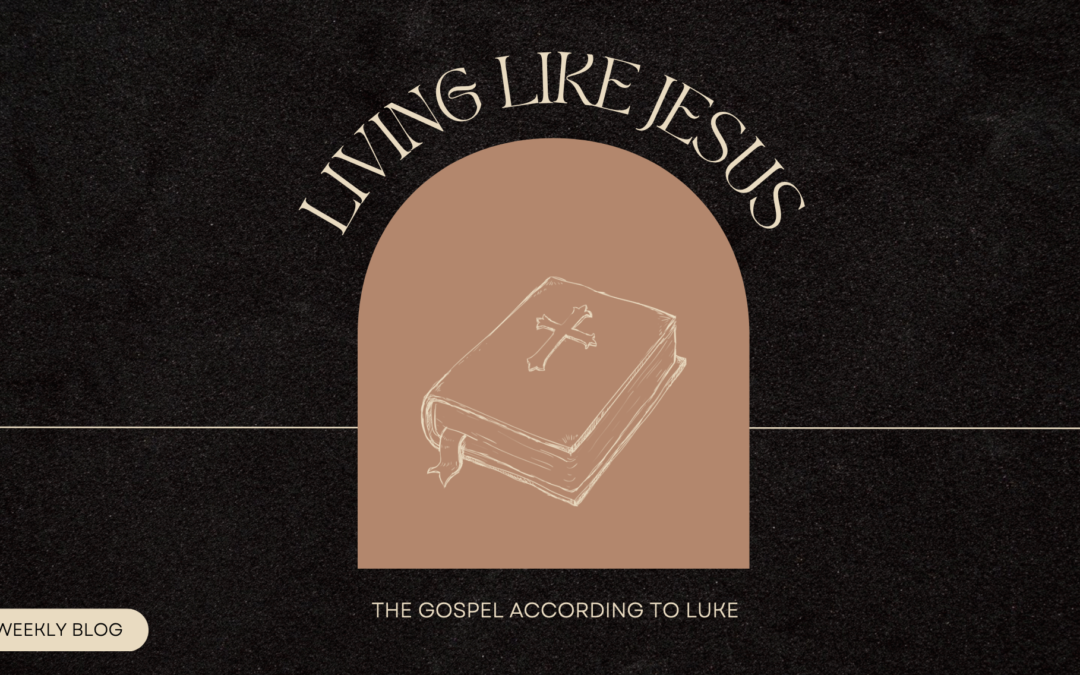LIVING LIKE JESUS: The Gospel of Luke—Week 5
Luke 7:1-10
This week we are beginning our examination of the next of Jesus’ spiritual practices: humility. As we know from Philippians 2:1-11, Jesus is the very epitome of humility. Yet, humility is a spiritual discipline that can be somewhat hard to define. It is many times easier to describe humility by what it is not rather than define what it is. One of my personal favorite definitions of humility is the definition provided by Andrew Murray: “The humble person is not one who thinks meanly of himself, he simply doesn’t think of himself at all.” In this week’s passage we’ll see how Jesus in his humility points to another as an earthly example of humility.
To truly understand the humility expressed by the centurion, we need a little historical and cultural background. A centurion was a unit commander in a Roman legion, usually commanding somewhere between 60-100 men. This centurion would have been part of the Roman occupation force occupying the province of Judea at the time. It would be an understatement to state that there was tension between the occupying Romans and the Jews—this story took place less than 50 years before the Romans would totally raze Jerusalem and either kill or enslave a good portion of the Jewish population. Thus, the kindness and benefaction shown by this centurion to the Jewish people would have been the exception rather than the rule. Additionally, it would have been unusual for the centurion to show such kindness to his slave, for slaves were commonly roughly treated and considered as chattel. Finally, it was generally taboo for Jews, especially the religious elite and the elders, to personally interact with Romans. The religious leaders who approached Jesus apparently made an exception for this centurion because of his generosity in building a synagogue for them. Yet, the centurion understood and respected this cultural norm, for it was out of respect for Jesus and his reputation that the centurion sent a Jewish delegation to Jesus to make his request.
In this centurion we see the living embodiment of Andrew Murray’s definition of humility. He doesn’t come to Jesus with false humility or in a self-deprecating manner. We see in his description of his authority that he is fully confident in his standing as a soldier, a leader, and, unfortunately, as a slave owner. Unlike the Jewish elders who approach Jesus on his behalf, the centurion also does not approach Jesus with a spirit of entitlement. He could make demands on Jesus as an officer of the occupying Roman army, and he could make demands on Jesus as a benefactor of the Jewish people, but he declines to do either. He doesn’t think too poorly or to highly of himself. He just doesn’t think of himself or his rights at all. His thoughts are for the welfare of his servant and for showing Jesus the deference he deserves.
What enabled the centurion to embody such humility? Jesus gave us the answer: faith. Though the centurion had every reason for confidence in his own standing and authority, that was not what guided him. He was guided by faith. This unclean gentile had a deeper understanding of who God was and how he operated than the self-righteous religious leaders who lobbied Jesus on his behalf. The centurion understood that any favor Jesus showed him was not based on his inherent worthiness (like the religious leaders believed) but rather on Jesus’ character and goodness. He took himself and his rights out of the equation.
If we are to embrace Christ-like humility, we must do the same. We must understand that God’s love for us and the grace he extends to us is not based on who we are or what we do but rather on the loving character of our Father. We must be careful to weed out any feelings of entitlement that creep into our hearts. We must exchange capricious self-confidence for the ever-faithful God-confidence the centurion showed. In doing so, we will begin to live a life of humility.
Questions:
- Read Phil. 2:1-11. What are the characteristics of the humility Christ displayed?
- How did the centurion show humility? How does his attitude contrast with that of the religious leaders?
- Who do you most identify with in this story, the centurion or the religious leaders? Why?
- What’s the difference between self-confidence and God-confidence? Which do you tend to embrace?






